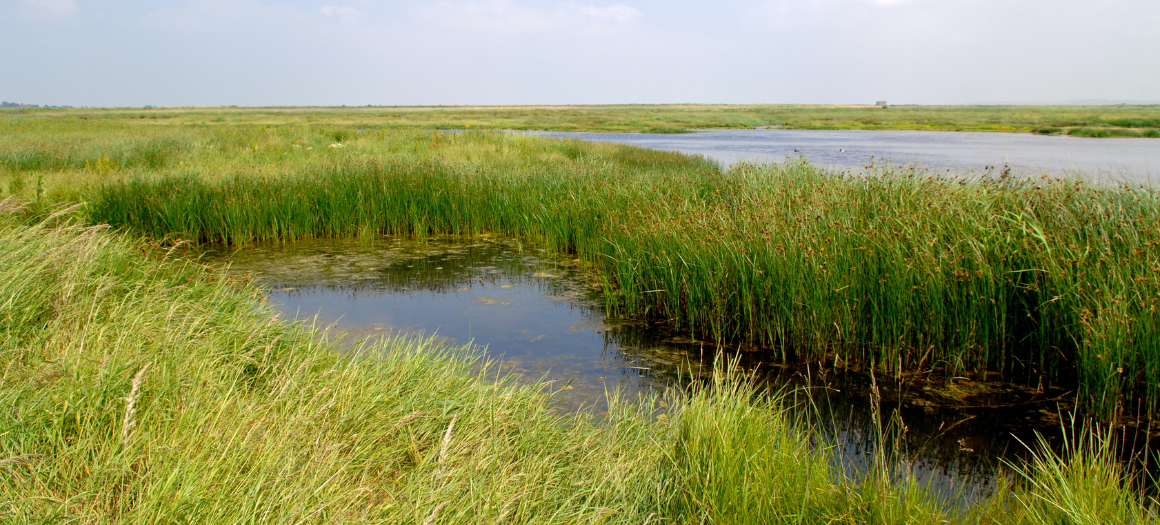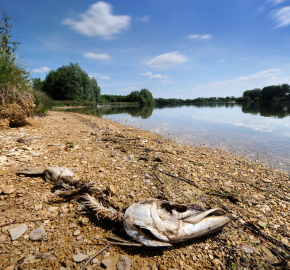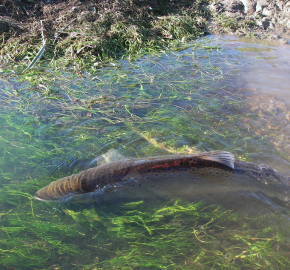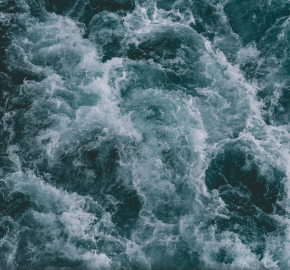Integrated Constructed Wetlands are not the solution to nutrient neutrality goals

New research shows that Integrated Constructed Wetlands (ICWs) designed to treat wastewater and reduce nutrient pollution in freshwaters are likely to be ineffective in providing a complete solution for river recovery. WildFish recommends that organisations responsible for nutrient mitigation reconsider the use of constructed wetlands based on strong scientific evidence.
ICWs have been widely advocated as a means of achieving nutrient neutrality (a process designed to ensure new development does not increase the amount of nutrients in a water catchment area) and allowing new developments to be built without raising phosphorus levels and causing further damage to our rivers, lakes and streams. More recently, research from the University of Bristol, completed at Wessex Water’s ICW in Cromhall, shows that they are not an effective solution in achieving the goal of an 80% reduction of phosphorous in wastewater, as required under the Environment Act of 2021.
Wessex Water’s ICW at Cromhall in South Gloucestershire [1] was designed to improve phosphorus removal at a small rural water treatment centre. The new research shows a very low phosphorus removal of just 7.6% in year one of the study rising to 12.3% in year two – a long way off the 80% reduction required.
VIEW THE RESEARCH
Previous studies of ICWs have led to potentially misleading conclusions because of incomplete sampling of different nutrient forms and/ or low sampling frequency. The new, intensive study by the University of Bristol provides a fuller understanding of nutrient cycling in ICWs, including all organic and inorganic nutrient forms captured at high frequency.
The science shows that, although they are perceived as a ‘green solution’ ICWs are highly unlikely to deliver the nutrient outcomes needed to protect and restore our aquatic habitats.
Janina Gray
Deputy chief executive at WildFish
Commenting on the research, Ms Gray continued: “There is a common assumption that wetlands are highly effective filters which have an infinite nutrient storage capacity, but neither of these ideas holds true. We urge the Government and all organisations concerned with delivering ICWs to carefully consider their effectiveness”.
Other concerns with the use of ICWs include losses of carbon storage, flood storage and biodiversity when they are constructed in floodplain settings, as well as potentially high greenhouse gas emissions. Legacy problems of accumulated nutrient, pharmaceutical and heavy metal burden in ICW sediments are also a great worry.
It is our recommendation that organisations and consultancies engaged with delivering nutrient neutrality must acknowledge the lack of phosphorus removal afforded by ICWs when deciding on solutions to support river recovery.
List of references
[1] Johnes, P. J. & Hussey, V. L. (2024), Nutrient cycling in wetlands: principles, evidence and practice. Unpublished report, p. 1-37. doi: 10.13140/RG.2.2.18496.96003.



